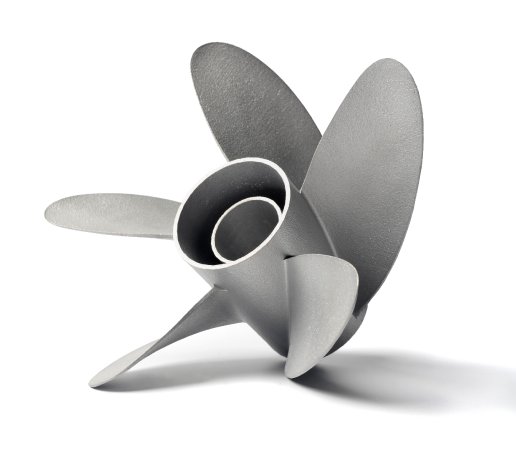Quicker, more intensive and interdisciplinary dialogues are the aim of the Rapid Technology trade fair in Erfurt. Rapid.Tech has been demonstrating this development from the manufacturing of prototypes to the direct manufacturing of end products and their components (Additive Manufacturing) since 2004. The focus is on direct generative manufacturing, which is regarded by experts as the manufacturing process with the greatest potential. The organisers of the trade fair want to continue 2010's record of success, with over 1,100 visitors and conference participants as well as 57 exhibitors, into its eighth run. So, from 24th to 25th May 2011 it's all about conveying and developing this important topic of the future to possible users with detailed industry information. The Rapid.Tech 2011 programme includes the user's conference, design engineer's day, the 3rd "CAD/CAM and Rapid Prototyping in Dental Technology" expert forum, the 2nd Medical Technology expert forum and the aviation expert forum.
Aiming at future markets
The two-day user's conference gives beginners a rapid introduction into the additive manufacturing of end products field and also supplies the advanced with an update on state-of-the-art technology. The keynote speaker is Prof. Dr. Jürgen Gausemeier, Professor for Product Development at the Heinz-Nixdorf Institute at Paderborn University. The qualified engineer is also a member of the federal and state Science Council.
The special expert forums integrated into the trade fair convey practical and industry-specific information about generative manufacturing processes to users from medical and dental technology and aviation. The design engineer's day on 25th May 2011 focuses specifically on these target groups' requirements for processes.
Changing dental technology
Generative manufacturing processes provide dental technicians with a viable business model. The possibility of asserting themselves on the market, lies in the combination of innovative processes. From the virtual design of implants to the electronic networking of systems to newly developed materials, dental technology is gaining impetus for the future. The use of modern, CAD-supported design systems supports the individual patient treatment and allows the dental technician to offer complex products and diversified services. Scanning the face can be used to support cosmetic treatment for example with the lips and jaw. Medical imaging accommodates the new methods. The image data system information is integrated into the planning of dentures and paves the way for the manufacturing of better implants.
Artificial bones and cartilage
The scope of generative processes for medical use is diverse. Surgeons particularly benefit from these innovations. For artificial bones, cartilage and tissue they can use a material which is increasingly more tailored towards the individual patient. Additive processes not only make operations easier, but they also make them more efficient as a result of saving time and costs. Using three-dimensional datasets, the critical sites can already be visualised before the operation. Even implants with highly complex and filigree structures will be able to be produced and used on an individual basis in future. Researchers are in the meantime even experimenting with the combination of additive manufacturing and tissue engineering, a process where human cells are cultivated in the lab.
Generative thinking
The Rapid.Tech trade fair invites exhibitors to a varied platform of events. Including discussions with experts, lectures on the latest application processes and the presentation of innovative machinery on site. At the same time, young talent will find a spring board into further careers here. Cataracta and Kinematics are two of the names of several award winning works which the STUDENT DESIGN AWARD for Rapid Manufacturing has in the meantime produced. Creative, visionary designers use this platform to test out the possibilities of generative manufacturing processes. In 2010, over 40 students took part in the fifth national competition initiated by the Stiftung für Technologie, Innovation und Forschung Thüringen (STIFT-Foundation of Technology and Innovative Development in Thuringia.) and Messe Erfurt. Winners are rewarded with prize money of 6,000 euro in total and the chance of networking with renowned designers and design engineers from different industries of the future. All the award winning works are produced by well-known companies such as 3D Schilling GmbH, 3D Systems GmbH, Objet Geometries Ltd., CP - Centrum für Prototypenbau GmbH, RTC Rapid Technology Center Duisburg and EOS GmbH.
More information at: www.rapidtech.de

